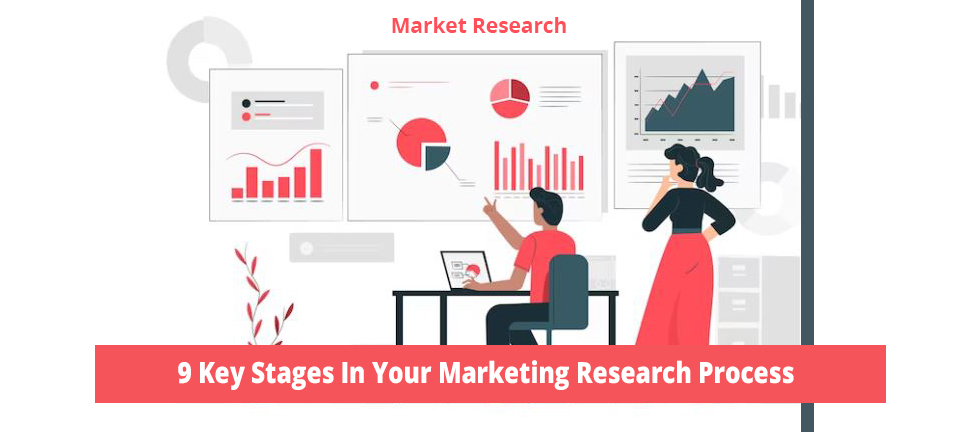
Marketing research is the cornerstone of informed decision-making in the business world. It enables companies to understand their markets, customers, and competition, paving the way for successful strategies and product development.
The marketing research process comprises several integral stages, each crucial for gathering and analyzing relevant data. Let's explore these stages in-depth, emphasizing their importance and contributions to a successful research outcome.
1. Defining the Problem or Opportunity
At the outset, defining the research problem or opportunity is the foundational step. This involves clearly articulating the objectives and goals of the research.
Whether it's understanding consumer behavior, gauging market demand for a product, or evaluating the impact of a marketing campaign, a precisely defined problem sets the stage for a focused and effective research effort.
Importance:
- Provides clarity and direction to the research process.
- Enables the formulation of research questions and hypotheses.
- Helps in aligning research objectives with business goals.
2. Conducting a Literature Review
Before diving into primary research, a literature review is conducted. This involves a thorough examination of existing literature, research papers, articles, and any relevant published work related to the research problem
A literature review helps in understanding what is already known, identifying gaps, and formulating research questions.
Importance:
- Provides a historical and theoretical context for the research.
- Helps in avoiding duplication of previous research efforts.
- Guides the formulation of research methodologies.
3. Designing the Research Methodology
The research methodology stage involves deciding on the approach (qualitative, quantitative, or mixed methods), selecting research methods (surveys, interviews, experiments), and determining the sampling technique.
It also involves creating research instruments like questionnaires and interview guides.
Importance:
- Ensures the appropriate selection of data collection methods.
- Guarantees the reliability and validity of the research.
- Provides a structured plan for data gathering.
4. Collecting Data
This stage involves collecting data according to the defined research methodology. Data can be collected through surveys, focus groups, interviews, observations, or online research. It's crucial to follow the methodology rigorously and maintain accuracy in data collection.
Importance:
- Provides raw data for analysis based on the research design.
- Enables understanding of consumer perceptions, attitudes, and behaviors.
- Forms the empirical basis for drawing conclusions.
5. Analyzing the Data
Once the data is collected, it needs to be processed, cleaned, organized, and analyzed. Statistical analysis, data visualization, and qualitative interpretation methods are employed to derive meaningful insights from the data.
Importance:
- Enables identification of patterns, trends, and correlations.
- Facilitates the conversion of data into actionable insights.
- Helps in making evidence-based decisions
6. Interpreting the Results
In this stage, the results of the data analysis are interpreted in the context of the research objectives. It involves making sense of the data and identifying the implications and insights derived from the analysis.
Importance:
- Transforms data into meaningful information.
- Links data findings with the research problem.
- Forms the basis for drawing valid conclusions.
7. Drawing Conclusions and Recommendations
Based on the interpretation of results, conclusions are drawn regarding the research objectives. Recommendations are then made, which are actionable, relevant, and aligned with the research goals. These recommendations guide future marketing strategies and initiatives.
Importance:
- Provides actionable insights for strategic decision-making.
- Guides future marketing plans and campaigns.
- Contributes to the achievement of business objectives.
8. Preparing the Research Report
The findings, conclusions, and recommendations are compiled into a comprehensive research report. This report includes an executive summary, methodology, findings, conclusions, recommendations, and any supporting visuals or data. It should be presented in a clear, concise, and easily understandable manner.
Importance:
- Communicates the research findings effectively to stakeholders.
- Acts as a reference document for future initiatives.
- Ensures the research process and outcomes are well-documented.
9. Presenting and Communicating Findings
The final stage involves presenting the research findings to relevant stakeholders. This can take the form of a presentation, meeting, or report dissemination. Effective communication ensures that the insights are understood and utilized for decision-making within the organization.
Importance:
- Facilitates a shared understanding of research outcomes.
- Enables discussions and debates based on the research findings.
- Enhances collaboration and collective decision-making.
Conclusion
The marketing research process is an intricate and systematic journey, encompassing various stages vital for gathering, analyzing, and interpreting data. These stages collectively form a roadmap to navigate the complexities of the market and consumer behavior.
A well-executed marketing research process provides invaluable insights, allowing organizations to make informed decisions, shape effective marketing strategies, and ultimately succeed in the competitive business landscape. By understanding and leveraging these 9 key stages, businesses can harness the power of research to achieve their goals and stay ahead of the curve.
